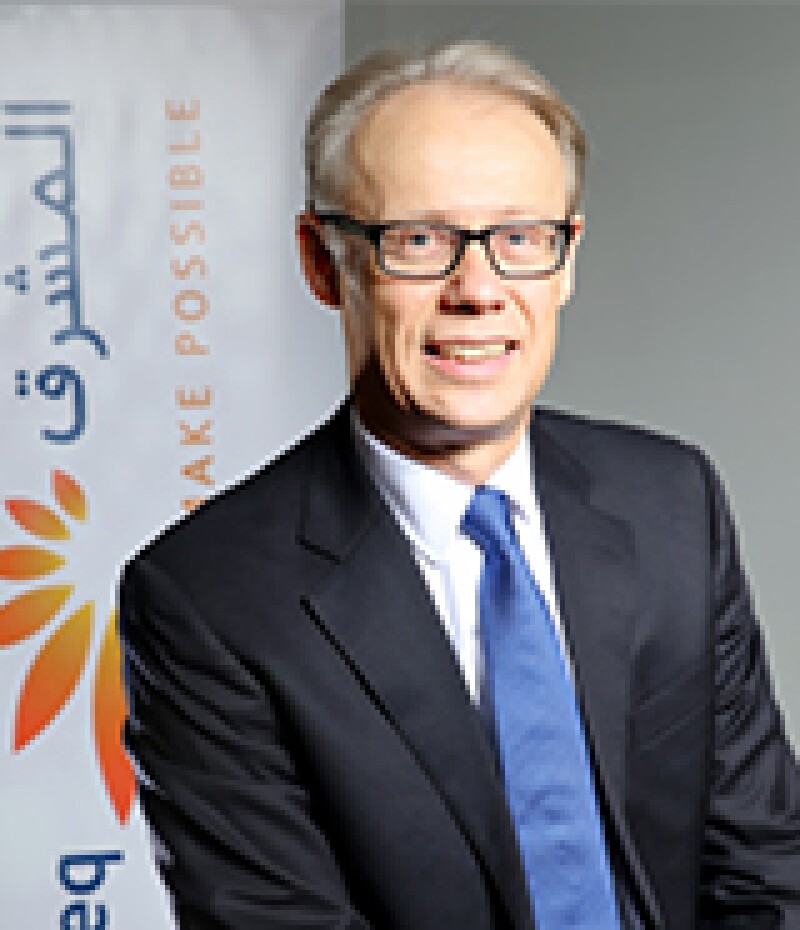

Jan Willem Sudmann, head of international banking at Mashreq Bank Across the world, banking is being transformed at an amazing pace. Traditional lenders are innovating in the face of competition from challenger banks, even as they expand into new markets.
Across the GCC region, banks are eyeing cross-border investment opportunities as they strive to boost efficiency, spur growth and bolster their bottom line. Two reasons underlie this push.
Rapid innovation enables banks to boost efficiency, profitability and growth. That has “opened a new window of opportunity to cooperate with financial institutions in foreign countries, especially in emerging markets”, says Jan Willem Sudmann, head of international banking at Mashreq Bank.
The other chief driver is financial deregulation. When emerging markets lift restrictions on foreign investment in financials, commercial banks enter, keen to invest in rival lenders.
In the UAE, a new investment law passed in 2018 boosted inward FDI, set to rise by 20% year on year in 2019, according to ministry of economy projections.
Mashreq Bank’s Sudmann notes that banks across the region are broadening their investor base, in part due to the challenges they face, including low oil prices and slowing economic growth. Dubai-based Mashreq Bank’s cap on foreign ownership is set at 49%, one of the highest among all UAE lenders.
“Digitalization is what sets a bank apart in a foreign market, not only giving them a competitive edge in terms of customer experience, but also generating additional efficiencies” Jan Willem Sudmann, Mashreq Bank
Internationally active
Mashreq Bank is also one of the UAE’s most internationally active financial institutions, with a strong and growing presence across the GCC, Egypt and India.
While highly competitive and saturated with local and southeast Asian lenders, the Indian market is also of high importance to Mashreq Bank’s future.
UAE banks have emerged as some of the most expansive financial institutions, expanding into Africa and Saudi Arabia.
Others are pushing into Asia, opening offices in cities like Shanghai, Hong Kong and Singapore, and targeting the retail market and the growing corporate space.
The key driver is surging trade flows between the Middle East, Africa and Asia, even as the UAE emerges as a global crossroads for finance, trade and tourism.
Not only does this outward push, in search of new markets and opportunities, boost efficiencies and spur growth, but it also adds value to the host market. “These benefits stem from efficiency gains brought about by new technologies, products and management techniques, as well as learning from innovative practices introduced by new entrants,” says Mashreq Bank’s Sudmann.
Expansion opens up new opportunities in the shape of rising trade, salaries and job openings, driven by growth-oriented financial institutions keen to root out potential lacking in home markets.
Of course, rules change from market to market and region to region.
In some countries, most costs including taxes are visible and transparent and rarely change; in others, they might shift, depending on the outlook of the government.
That requires planning before a substantial capital investment is made, offices are hired, and talent acquired.
97% of all customer transactions are done online at Mashreq Bank
Digital prowess
These days, one of the keys to success when expanding into a new market lies in a bank’s digital prowess.
“Digitalization is especially relevant when it comes to international endeavours,” says Sudmann. “This is what sets a bank apart in a foreign market, not only giving them a competitive edge in terms of customer experience, but also generating additional efficiencies while cutting operational costs.”
Challenges are everywhere these days, with traditional commercial lenders needing to be constantly on top of their game. The advent of ‘big tech’ offers challenges and opportunities – sometimes both at once.
Young challenger banks are pushing up, targeting young customers who may never have set foot in a physical branch. “This trend will continue thanks to the evolution towards regulatory openness and the rise of fintech enablers,” says Sudmann. “This gives legacy banks another factor to consider in their international expansion strategies.”
Digitalization will remain a driver for Mashreq Bank and all financial institutions, helping to cut costs, boost profits and target opportunities in new markets.
Commercial lenders that continue to grab the opportunities presented by the digital world stand the best chance of surviving and thriving.
“Given that in the retail space 97% of all customer transactions are done online at Mashreq, we have invested heavily in the digital arena and this will continue to be a thrust area for us,” says Sudmann.
